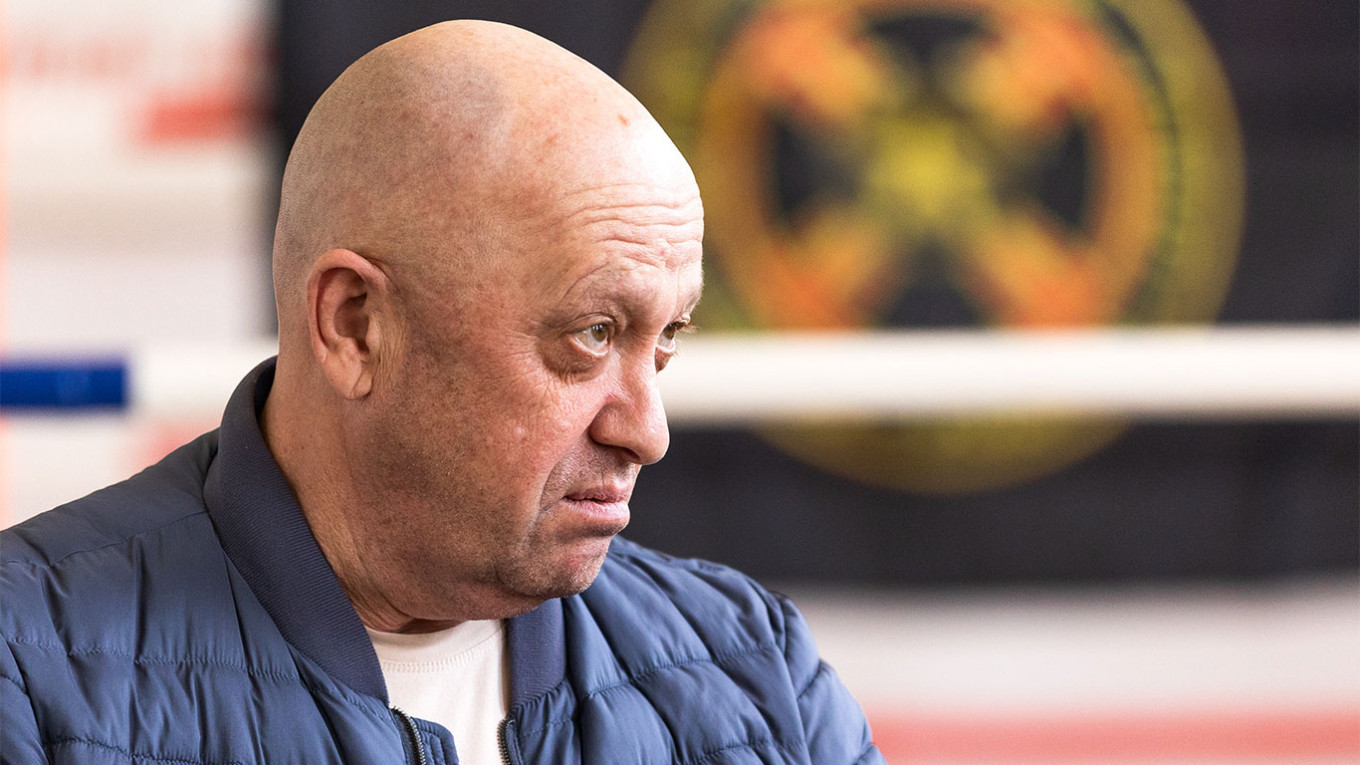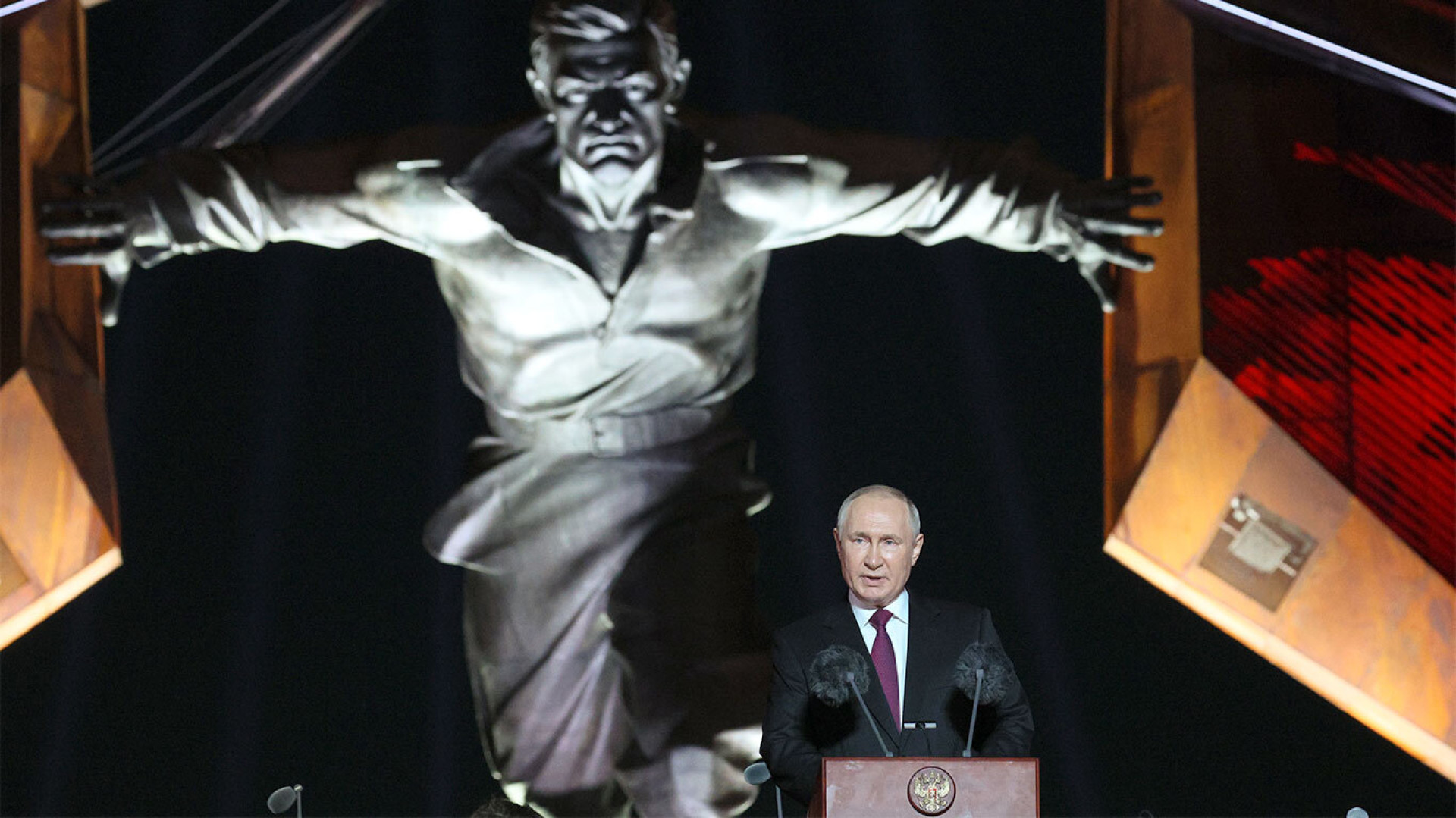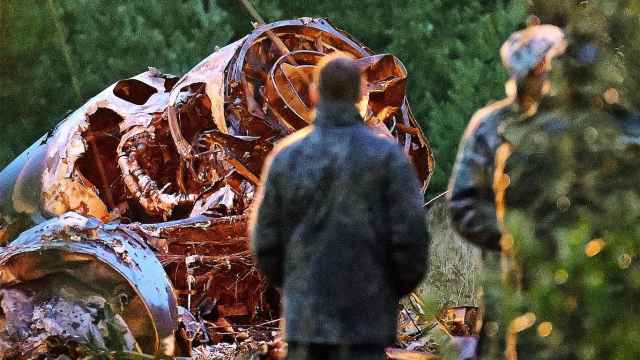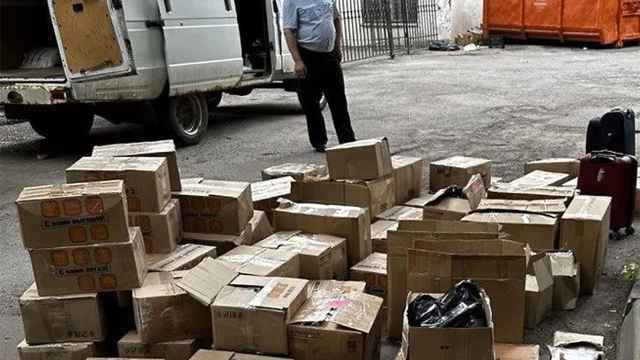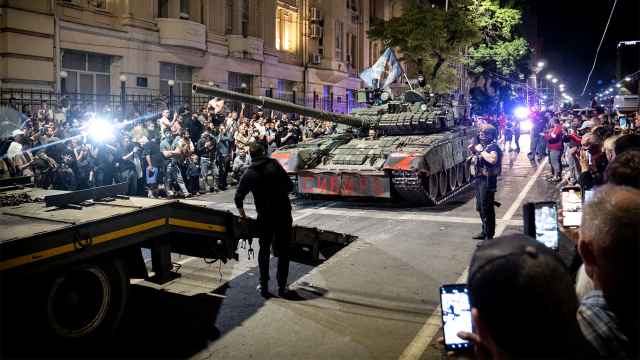Updated with Putin's remarks.
A plane carrying Wagner Group leader Yevgeny Prigozhin crashed northwest of Moscow on Wednesday, exactly two months after he and his mercenary outfit launched a failed coup against Russia’s military leadership.
Here’s everything we know about the crash, reactions from world leaders and analysis of what it could mean for Russia:
What do we know about the crash?
An Embraer Legacy 600 private jet dropped off radar screens near the village of Kuzhenkino in Russia’s Tver region, northwest of Moscow, at 6.20 p.m. local time on Wednesday. It was traveling from the Russian capital to St. Petersburg.
The plane has been linked to Prigozhin and was sanctioned by the United States in 2019.
Videos circulated on social media showed the plane in free fall spinning to the ground with a trail of light smoke behind it. Upon hitting the ground nose-first, the fuselage caught fire and started billowing dark smoke into the air.
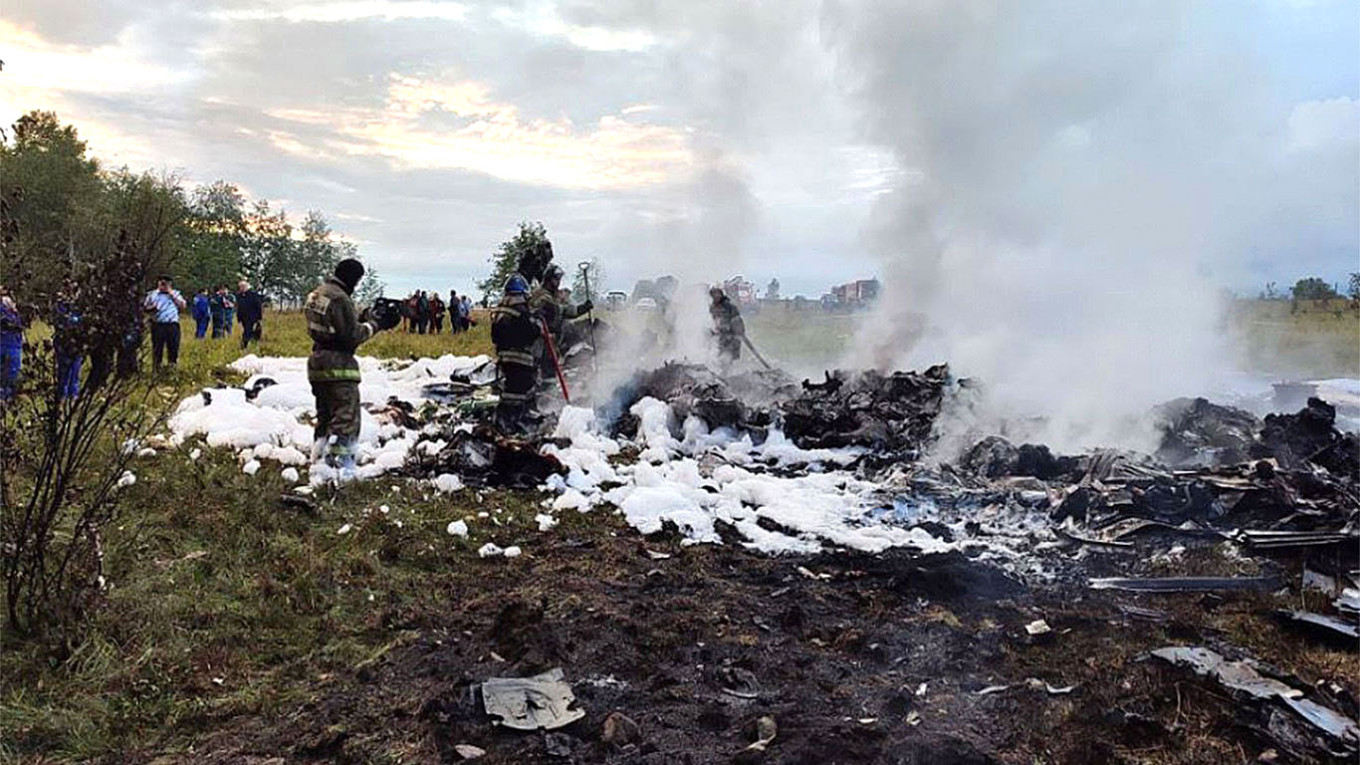
Russia’s Emergency Situations Ministry said all 10 people on board died. The federal aviation agency published a manifest of 7 passengers and 3 crew. Alongside Prigozhin, the manifest said his top military commander Dmitry Utkin and other senior Wagner figures were on board.
There was “no indication that there was anything wrong with this aircraft,” prior to the rapid descent at the end of the flight, Ian Petchenik of Flightradar24 said. He told Reuters the erratic climb in altitude could have been as the crew were “wrestling” with whatever problem they had encountered mid-air.
Prigozhin had returned from Africa on Wednesday, Russian President Vladimir Putin said in televised remarks on Thursday evening, and had held meetings with some officials in Moscow, without specifying who with or the nature of the discussions. Russian Telegram channels had previously reported Prigozhin and his team had met with defense ministry officials.
What don’t we know about the crash?
Russian authorities have not officially commented on the possible causes of the crash. Putin made his first comments around 7:00 p.m. on Thursday — a full 24 hours after the jet crashed — sending condolences to the families of those who perished and hailing Prigozhin as a “talented businessman” who had “made some serious mistakes in his life.”
Russia’s Investigative Committee has opened a criminal case into the violation of traffic safety rules and is investigating the crash. A representative told the RBC business news site it had not ruled out any possible explanations, ranging from pilot error or technical malfunction to “external influence.”
Investigators continued to search for the jet’s black box on Thursday. Poor weather overnight had delayed the work of forensic teams on site, state broadcaster Rossiya-24 reported.
None of the victims have yet been formally identified. The bodies that were recovered from the crash site were taken to a morgue in the city of Tver on Thursday morning, according to Russian journalists on the scene.
The injuries were too severe to allow for visual identification of the victims, the Fontanka news outlet reported from the crash site. Biological material collected at the site had been sent to Moscow for forensic analysis, according to the Baza Telegram channel, which is purported to have links to Russian law enforcement.
What could have caused the crash?
Prigozhin’s fate has been the subject of intense debates after he led the June 23-24 rebellion to topple Russia’s military leadership.
Putin said the coup plotters would “inevitably be punished,” but Prigozhin had appeared free to travel around Russia, despite a supposed deal struck with Belarusian leader Alexander Lukashenko to relocate to Belarus following the mutiny.
Immediate speculation across Russian social media and among figures close to the Wagner group has centered on two possible explanations for the crash: an explosive device on board, or a purposeful shoot-down by anti-aircraft missiles.
Most explanations assume Prigozhin was targeted deliberately following his failed attempt to topple Russia’s military leadership in his June rebellion, with the chance of the crash being an accident seen as remote.
The Associated Press said its frame-by-frame analysis of two online videos showing the jet’s freefall appeared “consistent with some sort of explosion mid-flight.”
The Financial Times cited an anonymous Western official saying they had been told by an unknown party that the plane “had been brought down by a Russian anti-aircraft missile system.” They could not confirm whether Prigozhin was on board.
Various Russian Telegram channels reported on Thursday that investigators were looking into the possibility of an on-board explosive device. The 112 Telegram channel, which has links to Russia’s security services, reported that investigators were seeking to interview everybody who had access to the hangar where the aircraft was stored before the flight. The jet had been under repair for 10 days before Wednesday’s flight, Russian media reported.
How have world leaders reacted?
Putin sent his condolences to the families of those killed in the crash. In televised comments on Thursday evening, he said Prigozhin was a “talented businessman” who had significant achievements in his professional life.
“He was a man with a difficult fate. He made some serious mistakes in his life. … He achieved the needed results both for himself and for a joint effort that I had asked him about during the last months,” Putin said, in an apparent reference to Prigozhin’s support for Russia’s invasion of Ukraine and the capture of the eastern Ukrainian city of Bakhmut earlier this year.
Western figures were quick to suggest the Kremlin, and Putin personally, were involved in the incident.
U.S. President Joe Biden, who was briefed on the incident on Wednesday told reporters: “I don’t know for a fact what happened, but I’m not surprised. … There’s not much that happens in Russia that Putin’s not behind, but I don’t know enough to answer.”
A French government spokesman said he generally agreed with Biden’s assessment, and said there were “reasonable doubts” over the cause of the crash.
Ukrainian President Volodymry Zelenskiy said Ukraine had nothing to do with the incident. “Everybody understands who was involved,” he told journalists in Kyiv.
What are independent analysts saying?
Several independent analysts have also pointed the finger at the Kremlin.
“No matter the cause of the plane crash, everyone will see this as an act of retaliation and retribution,” said Tatiana Stanovaya, founder of the R.Politik analysis group.
She said the Kremlin would not be too concerned about pushing back against that narrative.
“From Putin's perspective, as well as many among the security and military officials, Prigozhin's death should serve as a lesson to any potential successors,” she wrote on Twitter.
Mark Galeotti, a senior associate fellow at the Royal United Services Institute, said the “assassination” marks a new escalation in Putin’s campaign against traitors — but one that does little to make the president appear stronger.
“Putin — who would have had to have at the very least approved any decision to kill Prigozhin — has moved into a new and even more blatant era of assassination,” he wrote in The Spectator.
“The Russian elites are likely to see this as evidence not that Putin is strong but that he is increasingly and murderously erratic.”
Others doubted whether it would have any serious blowback for the Kremlin.
“Putin has been suspected of murdering people since 2000,” said Kirill Shamiev, a political scientist and visiting fellow at the European Council on Foreign Relations.
“After the arrest of [exiled tycoon Mikhail] Khordokovksy, the assassination of [ex-FSB officer Alexander] Litvinenko, the use of Novichok against [double agent] Sergei Skripal — only idiots would think that they're safe,” he told The Moscow Times, adding that the taking down of a private jet will bring the Russian elite even closer to heel.
“They have nowhere to go. They're terribly afraid for their own lives, their families, fortunes, and so on,” he said.
Stanovaya said she does not expect significant political ramifications in Russia.
“Prigozhin's death is a direct threat to everyone who stayed with him till the end or openly supported him. It's more likely to intimidate rather than inspire protests. So, no special reaction should be expected. There will be indignation, but no serious political consequences.”
The future of the Wagner group itself remains uncertain.
Wagner fighters are known for their fierce loyalty to Prigozhin — strong enough that hundreds were prepared to march on Moscow in a bid to remove Russia’s defense leadership. But their role in the war in Ukraine has been tempered since they captured the eastern Ukrainian city of Bakhmut, and their role in Russia’s military forces was already under review following the June mutiny.
“In the long term, the apparent killing will likely make morale among the leftover Wagner men even worse and will likely mean that the mercenary organization has no future outside of the direct command of the Russian Defense Ministry,” said Vladislav Davidzon, a nonresident fellow at the Atlantic Council’s Eurasia Center.
A Message from The Moscow Times:
Dear readers,
We are facing unprecedented challenges. Russia's Prosecutor General's Office has designated The Moscow Times as an "undesirable" organization, criminalizing our work and putting our staff at risk of prosecution. This follows our earlier unjust labeling as a "foreign agent."
These actions are direct attempts to silence independent journalism in Russia. The authorities claim our work "discredits the decisions of the Russian leadership." We see things differently: we strive to provide accurate, unbiased reporting on Russia.
We, the journalists of The Moscow Times, refuse to be silenced. But to continue our work, we need your help.
Your support, no matter how small, makes a world of difference. If you can, please support us monthly starting from just $2. It's quick to set up, and every contribution makes a significant impact.
By supporting The Moscow Times, you're defending open, independent journalism in the face of repression. Thank you for standing with us.
Remind me later.




